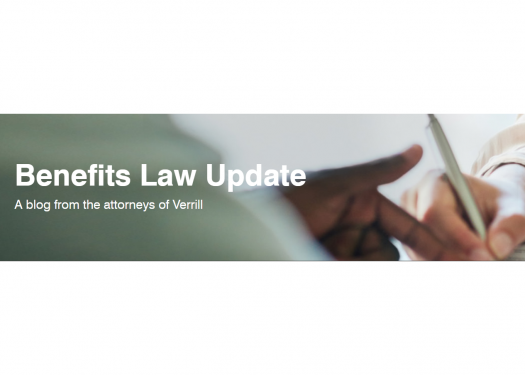Blog Posts: Benefits Law Update
Visit the Full BlogNamed a Top 10 Blog in Compensation and Benefits, Verrill's attorneys use the Benefits Law Update blog to provide timely updates and commentary on developments in law affecting employee benefit plans and executive compensation arrangements.
Cross-Plan Offsetting in Group Health Plans—The DOL Makes its Position Clear
Catch-Up Contributions: IRS Provides Relief from Roth Requirements of SECURE 2.0
Alternatives for Sponsors of Defined Benefit Pension Plans
New IRS Determination Letter Program for 403(b) and 401(a) Plans
IRS Announces New Pilot Program for Retirement Plan Audits
Required Minimum Distributions and Missing Plan Participants

Recent Court Decisions Extend the Statute of Limitations for Breach of Fiduciary Duty Lawsuits under ERISA
Employee Benefits & Executive Compensation 2021 Summer Client Advisory
Primer on Severance Plans Under ERISA and the Tax Code
DOL Guidance on Missing Pension Plan Participants - Part II
DOL Guidance on Missing Pension Plan Participants
Employee Benefits & Executive Compensation 2020 Year-End Client Advisory













